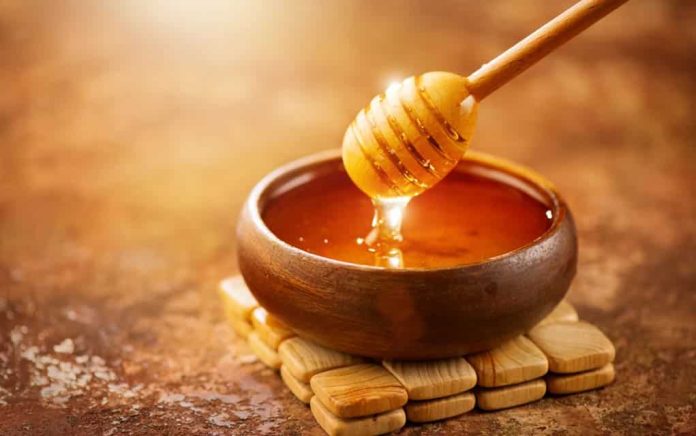
(HealthyResearch.com) – Many people suffer from seasonal allergies, but it can be challenging to know what to do about it. One widespread belief is that we can eat “raw” local honey to ease our symptoms. But does that really work?
Is Honey a Seasonal Allergies Cure?
In theory, honey might perform in a similar way to allergy shots. The idea is that exposing a person to allergens will desensitize them, which could lead to fewer allergy symptoms. But according to the American College of Allergy, Asthma, & Immunology, honey has not proven to help.
The problem is that, unlike taking allergy shots, when you eat raw honey, there is no way to know how much pollen you’re being exposed to. Experts believe that unprocessed honey contains too little of the allergens to make any difference.
Regular honey is even less effective at helping with seasonal allergies because commercial processing removes the pollen and contaminants.
The pollen that is found in raw honey mainly comes from flowers that attract bees. But flower pollen is less likely to cause allergies. Honey may also contain airborne pollen from weeds, grasses, and trees, but in minimal amounts.
What Else Does the Research Say?
In one study, published in the Journal of Allergy, Asthma, & Immunology from 2002, researchers examined the effects of local honey on seasonal allergies compared to pasteurized honey and a honey-flavored placebo. They found no difference between the three groups in terms of allergy symptom relief.
A conflicting study found that people who took extremely high amounts of raw honey over a period of 8 weeks did find minor relief from allergies.
One problem with both studies was there were very few participants (36 in one and 40 in the other), calling the data statistically into question. Further research is needed to determine whether large amounts of raw honey will benefit seasonal allergy sufferers and, if so, to what degree.
Is There Any Danger to Eating Raw Honey for Allergies?
While the scientific evidence didn’t prove the efficacy of raw honey in alleviating allergy symptoms, in some rare cases, honey may actually pose a risk. For very susceptible people, ingesting unprocessed honey might cause an immediate allergic reaction, especially if consumed in large quantities.
Allergic reactions to raw honey might vary from itching or hives to swelling of the skin, mouth, or throat. It may even result in anaphylaxis. Doctors believe that these rare reactions may be related to bee part contaminants or pollen.
Honey also poses a danger for young children. You should never give unprocessed honey to a child under the age of one because infants are at risk of contracting botulism from ingesting it.
The Bottom Line
Honey has many proven uses, but reducing allergy symptoms simply isn’t one of them. It’s a delicious substitute for sugar. Some people use it as a cough suppressant. It’s even been used as an effective wound treatment.
But when it comes to seasonal allergies, there may be other, more effective treatments that you should explore. If allergy-fighting techniques and over-the-counter allergy medications do not provide an adequate level of relief, consult with your healthcare provider to find out what other options may be available. Enjoy honey, but enjoy the season, too!
~Here’s to Your Health & Safety!
Copyright 2021, HealthyResearch.com
















